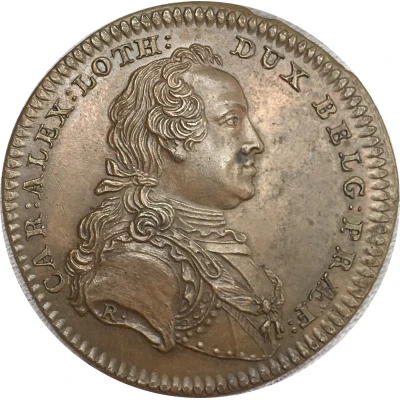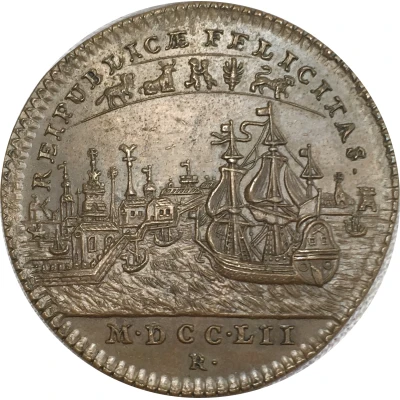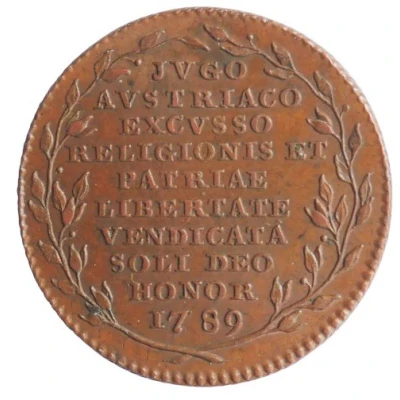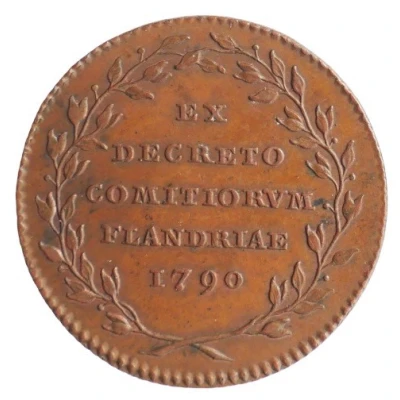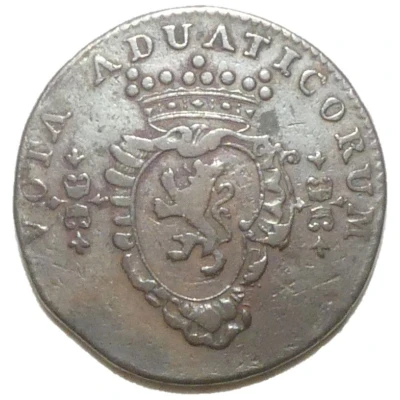
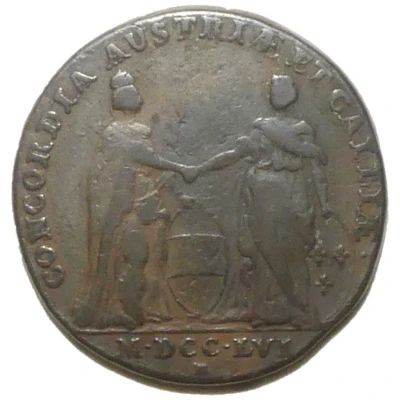

© Collector 86 (CC BY-NC-SA)
Médaille pour le Traité de Versaille de
1756 year| Copper | 14.6 g | 31.6 mm |
| Location | Austrian Netherlands (Belgium) |
|---|---|
| Empress | Maria Theresa (1740-1780) |
| Type | Medals › Commemorative medals |
| Year | 1756 |
| Composition | Copper |
| Weight | 14.6 g |
| Diameter | 31.6 mm |
| Thickness | 2.5 mm |
| Shape | Round (irregular) |
| Technique | Milled |
| Orientation | Medal alignment ↑↑ |
| Demonetized | Yes |
| Updated | 2024-11-14 |
| Numista | N#348167 |
|---|---|
| Rarity index | 97% |
Reverse
Austria and France, each represented as a crowned woman with their coat of arms, facing each other and holding out their hands; the legend all around at the top, and below the date; all around a circle of pearls.
Script: Latin
Lettering:
CONCORDIA AUSTRIÆ ET GALLIÆ
M • DCC • LVI
R
Engraver: Jacques Roëttiers
Edge
Plain
Comment
https://fr.wikipedia.org/wiki/Trait%C3%A9_de_Versailles_(1756): The Treaty of Versailles of 1756 (first known as the Treaty of Jouy, then as the first Treaty of Versailles) was a diplomatic agreement between Austria and France signed on May 1, 1756 at the Château de Jouy, at the home of Antoine-Louis Rouillé de Jouy, then Minister of Foreign Affairs. The treaty was signed by Rouillé and Bernis on behalf of Louis XV, and by Starhemberg, Austrian ambassador for the Count of Maria Theresa of Austria. It put an end to more than 300 years of enmity between the Bourbons and the House of Habsburg.Who were the Aduaticians?
https://zims-lfr.kiwix.campusafrica.gos.orange.com/wikisource_fr_all_maxi/A/L%E2%80%99Encyclop%C3%A9die/1re_%C3%A9dition/TUNGRI Jaucourt. Encyclopédie, 1st ed. 1751 (Tome 16, p. 745): The Aduatici held the county of Namur, & part of Brabant. Their main towns were Geminiacum, now Gemblours (=Gembloux), & Perviciacum, a village now called Pervis. (D. J.)
https://encyclopedie.arbre-celtique.com/geminiacum-liberchies-pont-a-celles-11836.htm indicates instead that "Geminiacum is an ancient road relai on Antonin's itinerary from Cassel to Cologne, where it is located between Vodogoriacum (Waudrez) and Perniciacum (Braives). It was close to the former commune of Liberchies (Province of Hainaut, Belgium), now part of Pont-à-Celles."
https://fr.wikipedia.org/wiki/Gembloux: Geminiacum and Germinicum are mentioned around 300 AD, and Gemblaus in 946...
Not always easy to locate these ancient towns!
